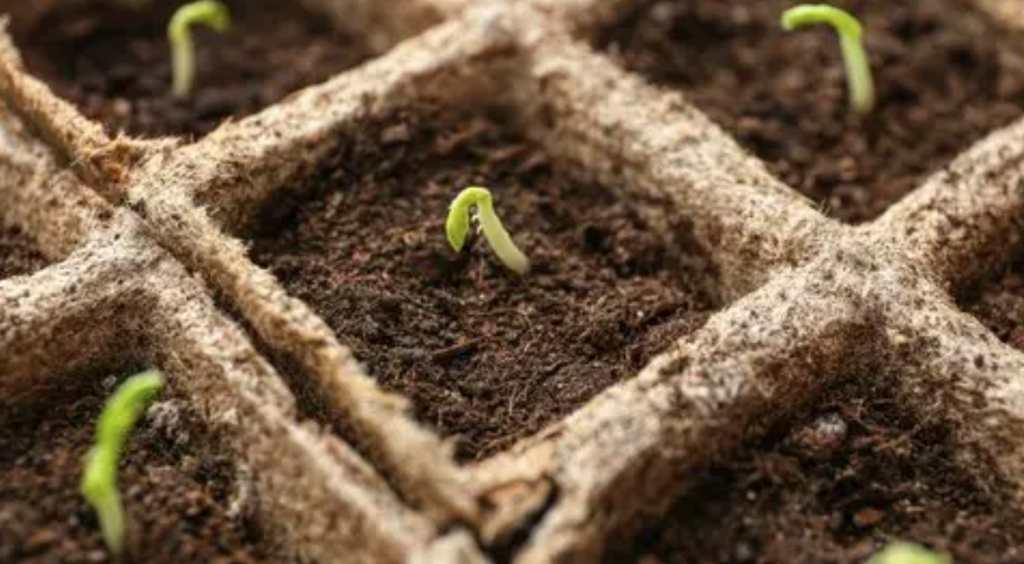Cocopeat, mainly referred to as coir husk or coco peat, is an organic, sustainable, and environmentally friendly medium developed from the husks of coconuts. It is a multifunctional medium for growth used in agriculture and gardening.
The fibrous outer husk of coconut shells serves as a natural and sustainable substrate. It has several other functions beyond having an environment for the growth of horticulture crops.
Due to the numerous benefits of the soil, cocopeat is an increasingly common alternative. It retains nutrients and water for an extended period owing to its excellent water retention features, which help the growth of healthy plants. In addition, it has exceptional drainage qualities that guard against waterlogging and allow ideal aeration of the roots of plants. Given its pH neutral and absence of diseases, weed seeds, and pests, cocopeat is suitable for various plants.
Several uses include using cocopeat as a medium.
Cocopeat offers numerous functions, including providing an essential component for potting mixtures for gardening in containers. It serves as a substrate foundation for hydroponic gardens, supplying bedding for worm agriculture, and serving as mulch that helps soil maintain moisture. In addition, it is used for the growth of seeds and cutting in nursery settings. In addition to its efforts for combating erosion and restoration of the land.
The environmentally friendly nature of coco peat is one of its primary advantages. Using the husks of coconuts, a byproduct of the processing of cocopeat, reduces wastages while making use of an environmentally friendly resource. Furthermore, renewable coco peat can be reused or discarded in a good way after use.
As a result of the plant’s strong preference for the mineral potassium, some plants might require additional fertilization using magnesium and calcium to maintain an adequate balance of nutrients. Cocopeat contains very little nitrogen, which could make it inadequate for crops with nitrogen requirements. In addition, coco peat might require to have it periodically brushing or adjusted to maintain its firmness because it can compress with time, reducing its aeration features.
In a nutshell
Coco peat is an adaptable and lasting medium for growth which offers many benefits for gardening and farming, additionally needs to be maintained and replenished appropriately for the optimum growth of the plants.
Benefits of using cocopeat
- When used as a medium for development, cocopeat offers plants several benefits:
- Water storage: Coco Peat can hold moisture for an extended period because of its excellent water-holding capacity. So crops get access to sufficient moisture for maximum growth even during drought period by providing them with a constant water. Given its ability to absorb water, cocopeat is ideal for areas that are water-sensitive or prone to drought because it could reduce the amount of watering.
- Aeration: The powerful aeration properties of cocopeat offer adequate circulation of air around plant roots. This stimulates the robust development of the roots and prevents waterlogging, which may result in root rot. The cocopeat’s open structure provides roots access to oxygen, which is essential to plant respiration and overall growth.
- pH neutrality: Cocopeat has a neutral acidity level, which renders it pH-neutral. Since it has no effect on the development medium’s pH, it is outstanding for many kinds of plants. On the other hand, certain organic substances such as peat moss, which can be acidic and might require additional pH adjustments for certain plants, are not considered acidic.
- Retention of nutrients: Cocopeat might retain and release nutrients slowly, acting as a nutrient reservoir for plants. It helps in providing plants with a regular supply of essential nutrients which may encourage their growth and development. It is crucial to bear in mind that cocopeat is a low-nutrient media that frequently need fertilizer applications for optimal growth of plants.
- Renewable and sustainable: Coconut husks, a continuous and abundant resource, are utilized for producing cocopeat. Since cocopeat is a byproduct of the coconut sector and does not require the extraction of peat moss from sensitive peat bogs, which are non-renewable resources, it promotes sustainability.
- Disease resistance: Based on reports, cocopeat includes natural antifungal and antibacterial properties which could prevent the development of hazardous infections in plants’ root regions. Plants which are healthier are less prone to diseases and pests.
- Ecologically sound: As a natural and renewable product, cocopeat is environmentally friendly and biodegradable. It can be safely disposed of or recycled after use and does not contribute to environmental pollution or harm.
As a medium for development, cocopeat offers a variety of benefits to plants, including being able to keep water, oxygenate the soil, keep a neutral pH. It maintain nutrients, be environmentally friendly, be resistant to disease, and be good to the environment. Due to its versatility and beneficial impact on plant growth and development, it is an increasingly popular choice among horticulturists, gardeners, and business owners.
Read more about Intensive farming here

